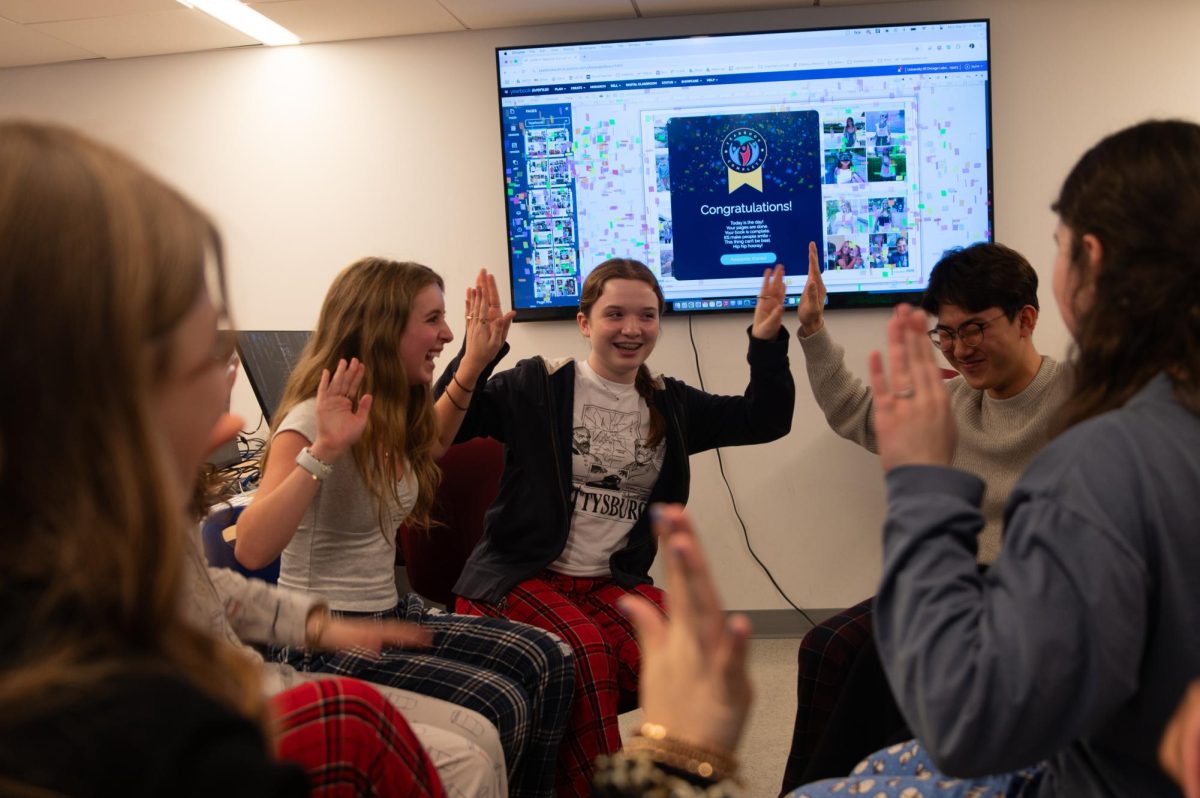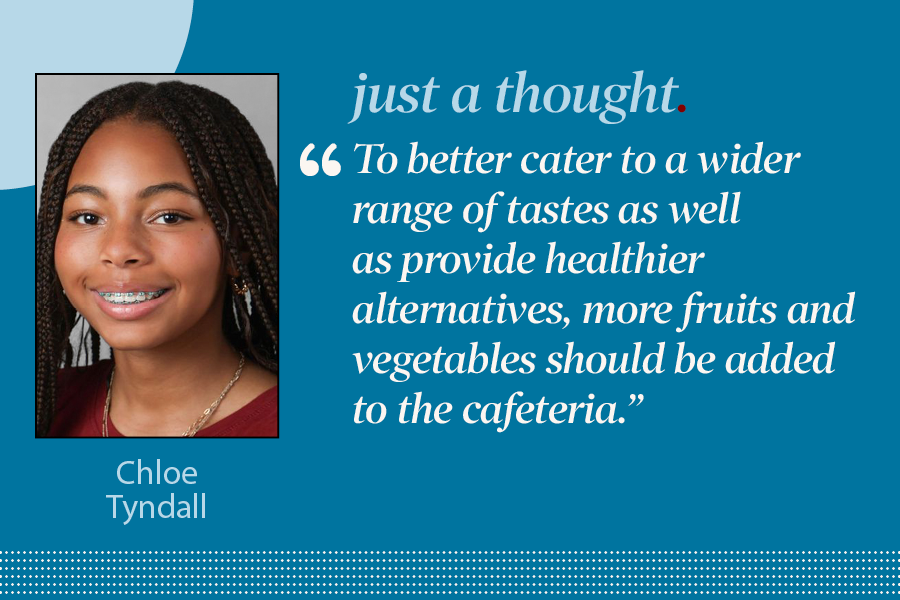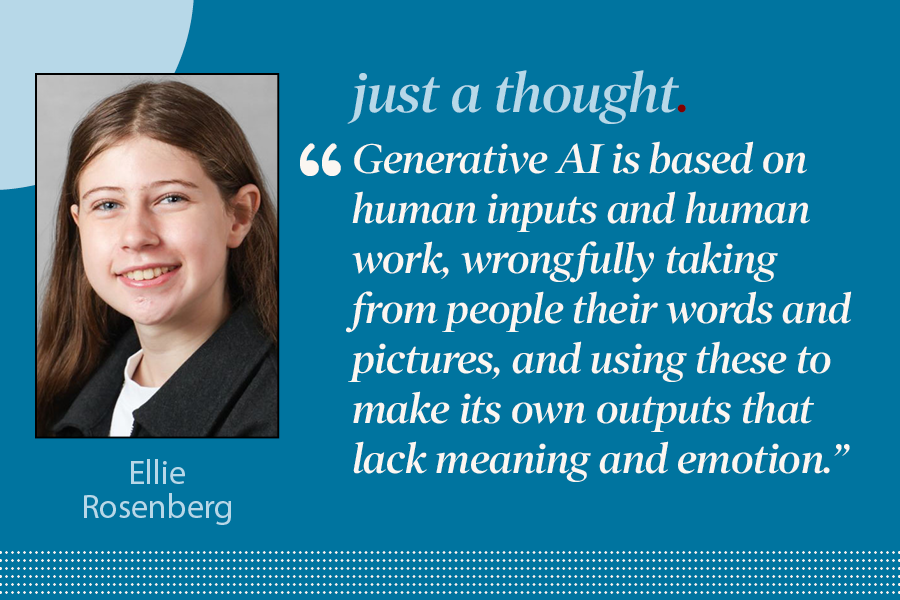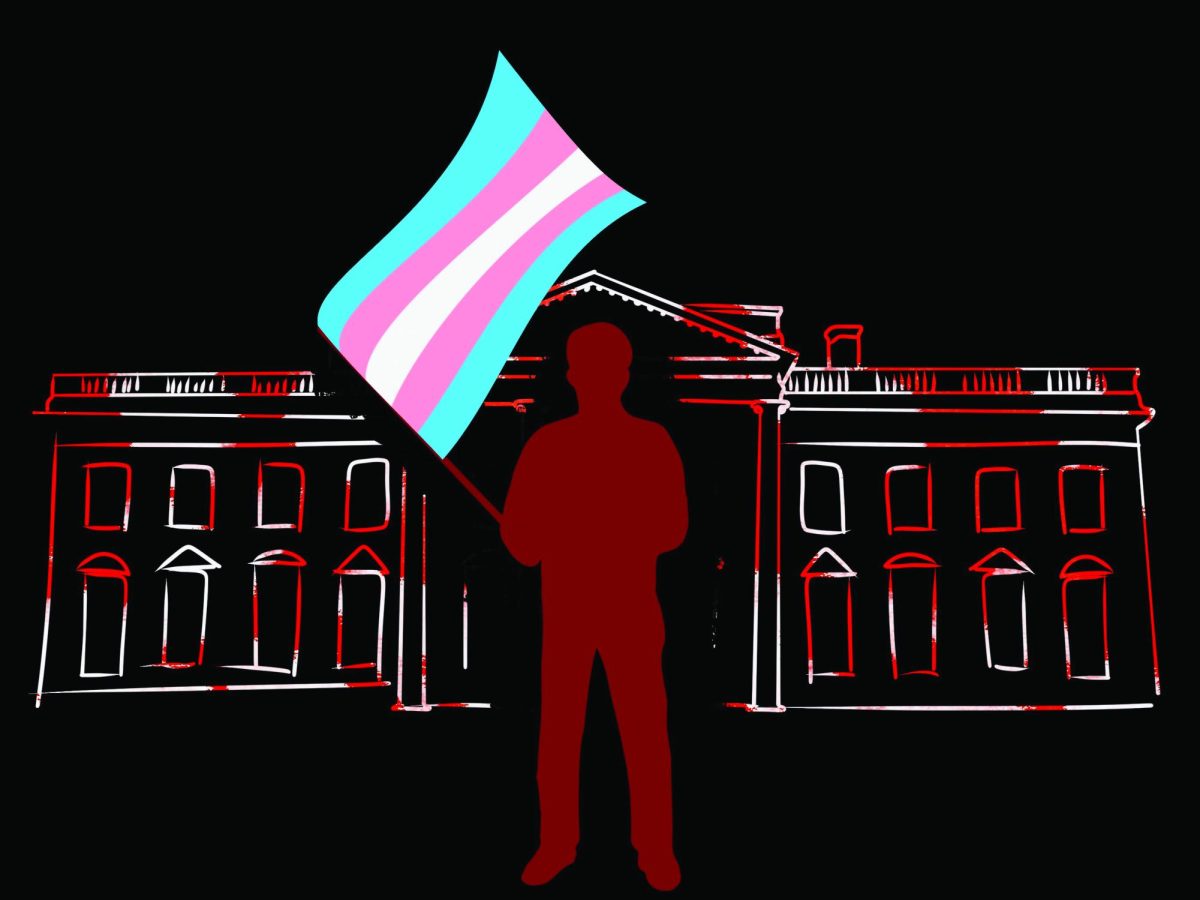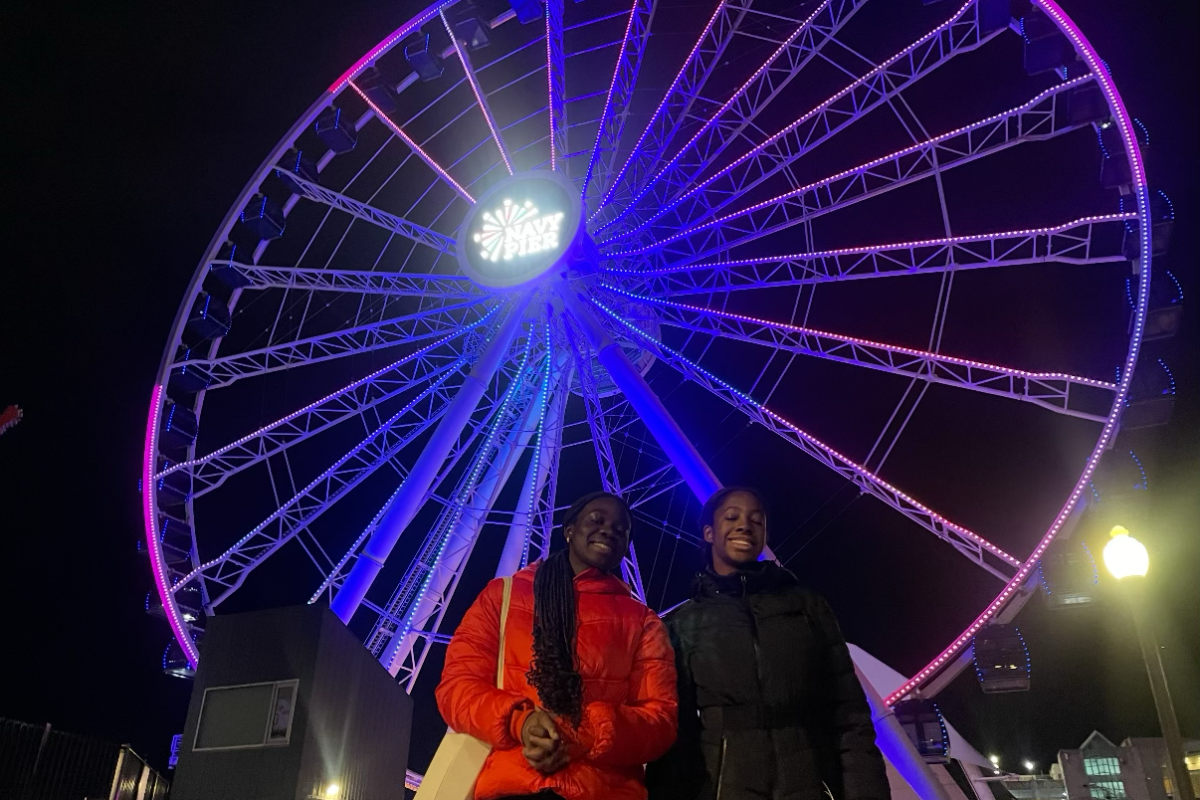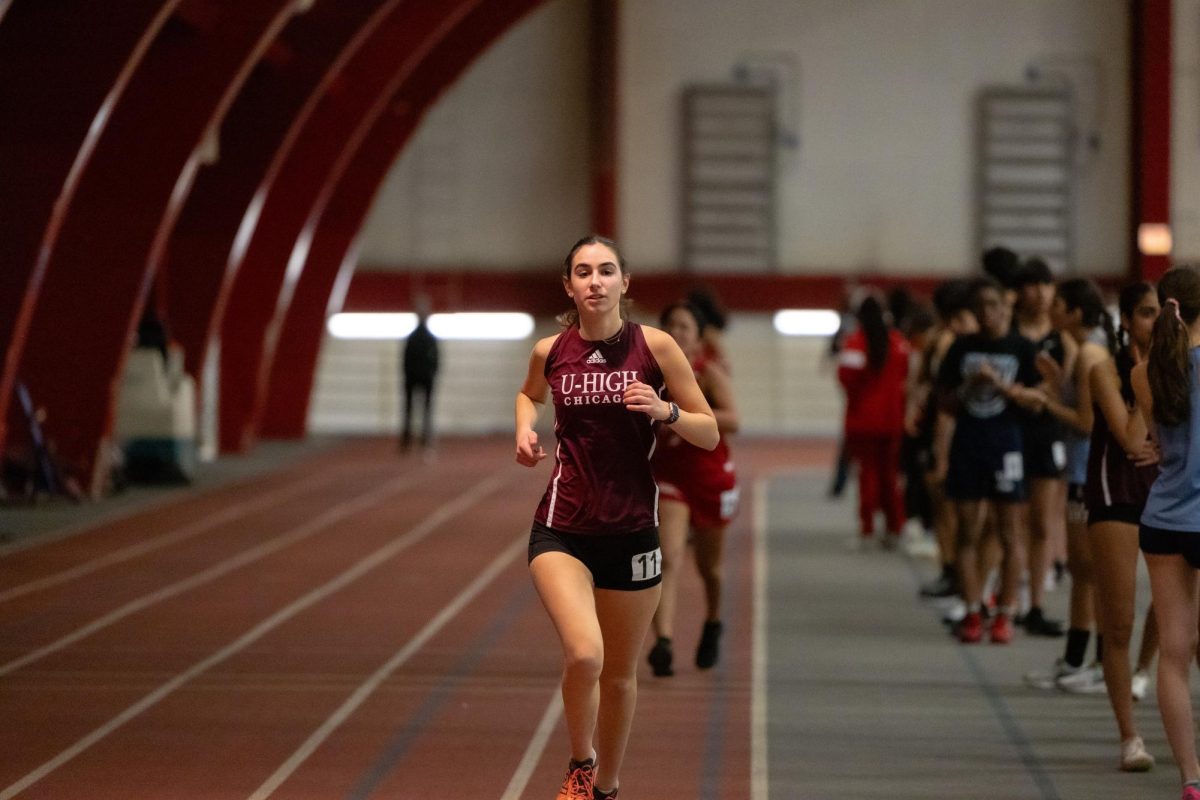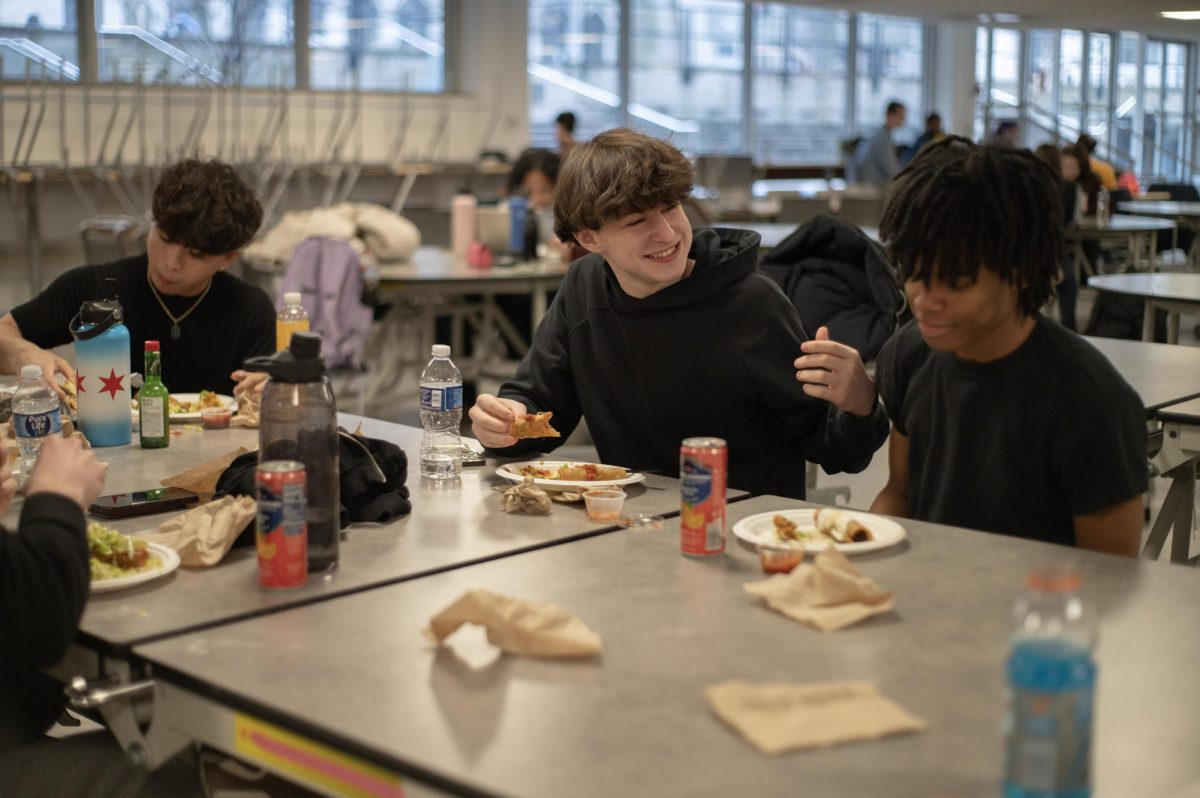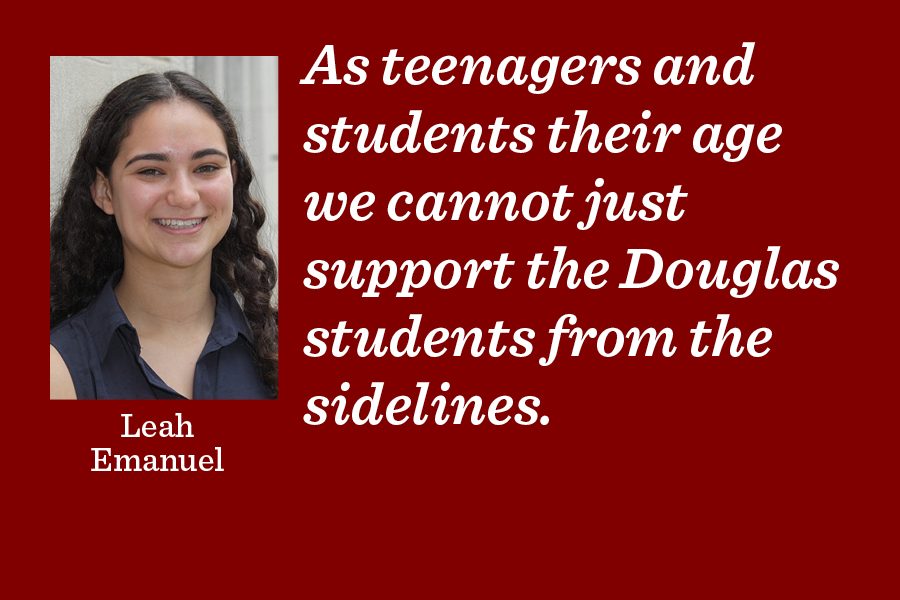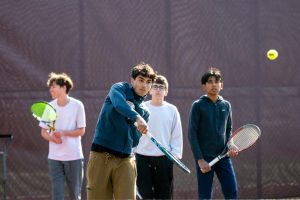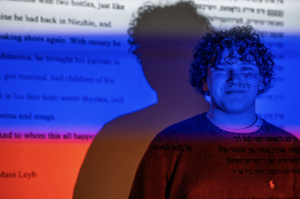Gun violence should not be the new normal
March 8, 2018
Feb. 14, 2018.
7 a.m. Central Time: I grab my lunch off the kitchen counter. I smile and hug both my parents before walking out to the car to go to school.
7 a.m. Eastern Time: Daniela sleeps at her home in Coral Springs, Florida, 15 minutes from Parkland.
12:30 p.m. CST I sit with my friends in the cafeteria as we talk about the Hunt, plans for the weekend and our stressful school weeks.
12:30 p.m. EST Dani enjoys a day off of school. Days after her birthday, she soaks in the beautiful weather as she and her family head to lunch together.
2:26 p.m. CST I get a notification on my phone in calculus. The headline tells me about a school shooting in Parkland, Florida. I don’t click to read the article.
2:26 p.m. EST Dani receives a text in a group chat asking her friends at nearby Marjory Stoneman Douglas High School if they are OK. She is confused and not sure what’s going on.
2:31 p.m. EST Dani’s mother starts to tell her there is an active shooter at Douglas, but finally recognizing what’s happening, Dani finishes her mother’s sentence. Dani texts her friends to make sure they’re OK, and learns that her friend Nicholas Dworet is missing. She assures herself everything is fine.
“I thought, ‘OK, everyone is evacuating school. He has to be fine. It’s going to be OK. It’s no big deal.’”
8:30 p.m. CST I rehearse with my company for a dance show the upcoming weekend.
8:30 p.m. EST Dani thinks maybe Nick is in the hospital.
10:20 p.m. CST I get home from dance and my mom and I start talking about the shooting. She asks me what the response was at school today, and I said unfortunately it seems like a lot of people are numb to mass shootings by now.
10:20 p.m. EST Somebody said that they saw Nick get shot. Dani’s friends start to prepare themselves.
“It was just a really stressful night for me and for my whole family and for my swimming community […] I was like, ‘This can’t be happening to us.’”
3 a.m. CST I sleep soundly in my home in Chicago.
3 a.m. EST Worried about the safety of her friend, Dani tosses and turns all night in bed.
“I just remember trying to sleep that night and waking up over and over again and trying to think, like, ‘It’s fine — he’s gonna be fine. I don’t want to think about it.’”
7 a.m. CST I grab my lunch off the kitchen counter. I smile and hug both my parents before walking out to the car to go to school.
7 a.m. EST Dani wakes up, goes to the kitchen and sees her mom crying. Without her mother saying anything, Dani knows what happened.
Though my life had not changed, Dani’s would never be the same.
In the hours and days following the deadly shooting in Parkland, Florida, I went through a routine similar to all school shootings in the past. I read articles, was inspired by speeches and was brought to tears by the stories of the victims.
However, nothing affected me as much as speaking with Dani Gomez.
Though she does not attend Marjory Stoneman Douglas High School, she goes to a school nearby and has been friends with Nicholas Dworet, a victim of the shooting, ever since she was little.
As I listened to her story, the cruelty of the Parkland shooting struck me like no other mass shooting has before.
At 17, Nicholas was the same age as me. Just like me, he was eager to go to college in the fall. Just like me, he was dedicated to athletics. Just like me, he had family and friends who loved him and cared about him.
However, as a result of poor gun control laws, insufficient mental health resources and failure to follow up on clear warnings, Nicholas will never have the opportunity he deserves to live a long and full life.
Recognizing this reality made my skin crawl, my stomach churn and my heart rate quicken.
I was at a complete loss for words.
Coming of age at this time, we are the first entire generation that was born after the 1999 shooting at Columbine High School in Colorado. For us, school shootings, which were once an irregularity, are a normalcy.
A revolting normalcy.
As teenagers and students their age we cannot just support the Douglas students from the sidelines.
As the next generation we must create a new sense of normal. We must re-establish a sense of security and safety on school campuses that has been lost.
This is our future, and we all must fight for it.

